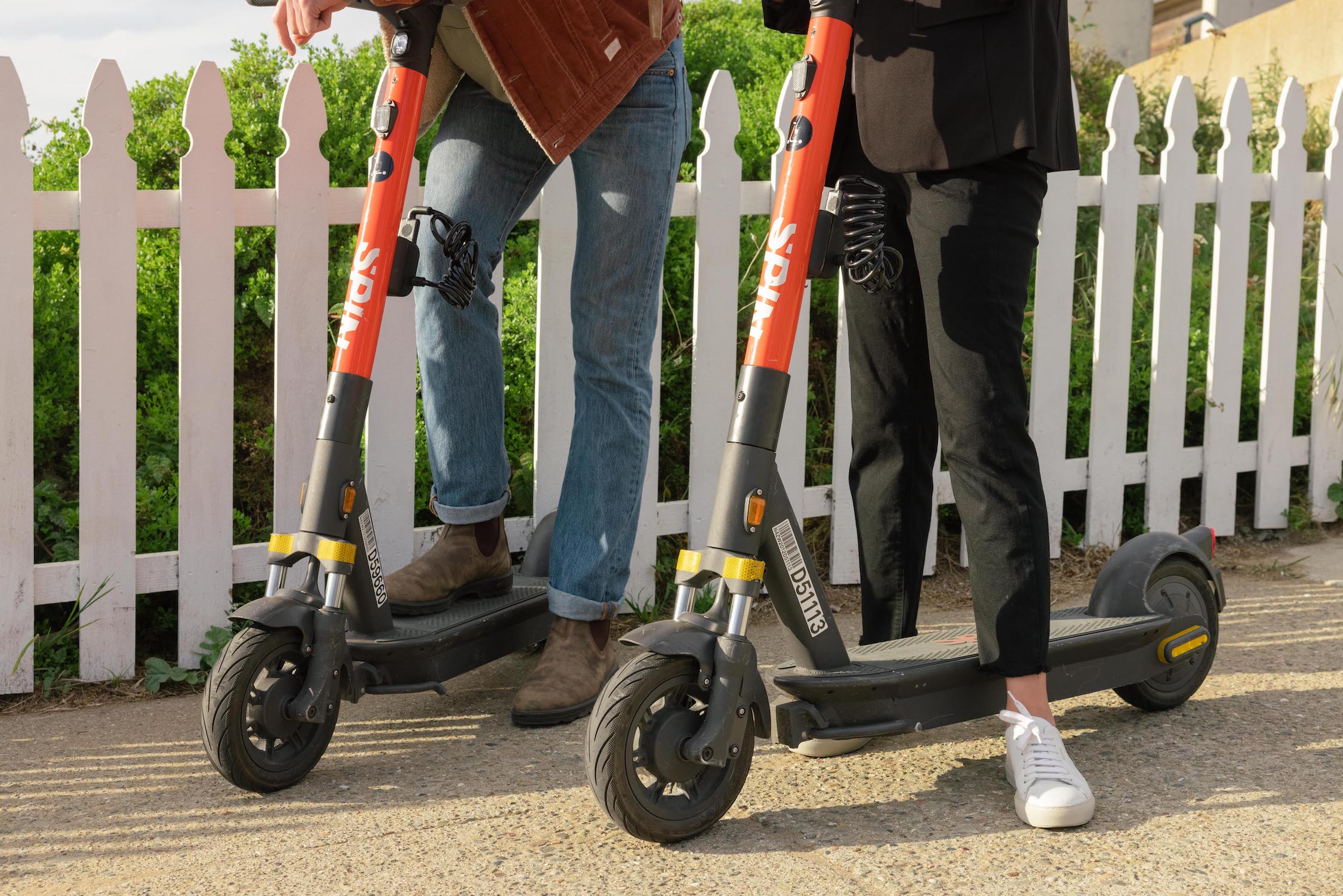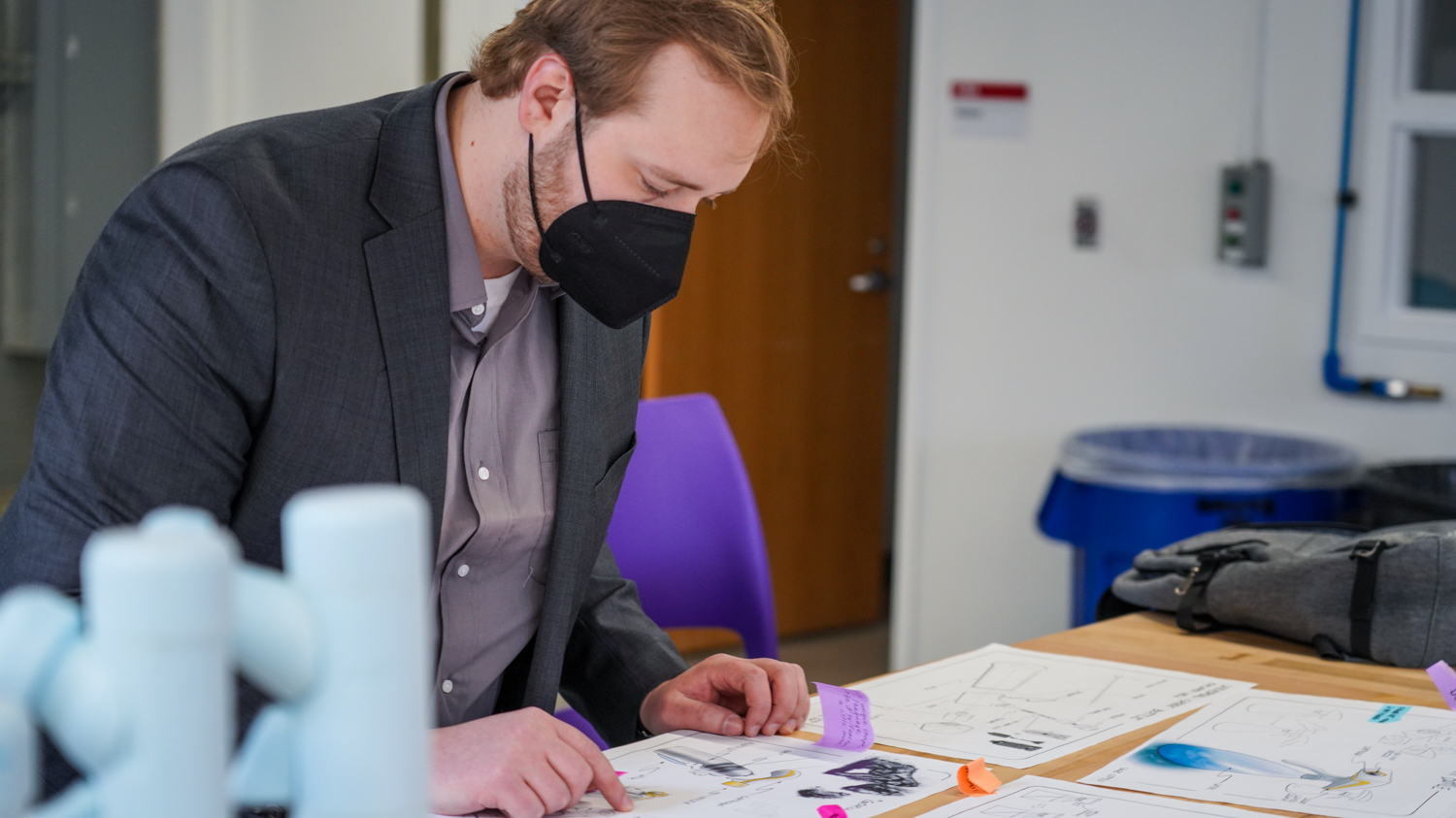NC State and Spin Announce Micromobility Partnership
Research Collaboration Aims to Improve Safety and Rider Experience

August 16, 2022
Spin, a leading micromobility service provider, and NC State have announced a new partnership to advance micromobility innovation. Part of an in-depth study on driver behavior led by NC State faculty experts, researchers will analyze trends in e-scooter rider behavior, interactions between road users and other valuable safety data.
“The partnership provides the opportunity to further transportation research in order to improve safety and rider experience,” said Mark Schmidt, NC State’s associate vice chancellor for partnerships. “We look forward to working together to strengthen micromobility innovation.”
The partnership provides the opportunity to further transportation research in order to improve safety and rider experience.
As research partners, Spin and NC State faculty will explore topics such as modeshift on campus, parking compliance, and safety and education. Spin will also hire student ambassadors to support integration, peer-to-peer education and data collection across campus.
Spin chose NC State due to the university’s leadership working across industry and government to develop mobility solutions. NC State ranks second among U.S. public universities in research technology transfer and commercialization. And the university’s researchers are leading initiatives to tackle complex transportation challenges, such as developing extreme fast chargers for electric vehicles; leading a multidisciplinary research center using data to reduce traffic congestion; and integrating drones to build a nationwide advanced wireless network.
Spin is also the new electric scooter and bike provider for the university. This fall, a fleet of 300 e-scooters and 50 e-bikes will be available at ride-share stations using the Spin app for short commutes across campus.
“We’re thrilled about this opportunity to partner with faculty, staff and students at NC State,” commented John Lankford, Head of Campus Partnerships at Spin. “The campus footprint offers a perfect use case for e-bikes and e-scooters, with the research partnership providing the opportunity to explore and improve enhanced outcomes related to micromobility.”
NC State’s Transportation Department selected Spin as the university’s micromobility operator based on Spin’s experience implementing successful campus programs with a customer-focused approach and incorporating the latest technology. Spin’s e-scooters, outfitted with state-of-the-art geofencing, will result in faster response times and more effective communication of parking requirements to users. Spin will deploy its fleet across all NC State campuses, including Centennial Campus where e-scooters have not previously been offered. Another new option available to the campus community will be Spin’s e-bikes which provide pedal-assist functionality and automatic gearing.
“Partnering with Spin is a win-win for the NC State community,” said Than Austin, NC State Director of Transportation. “In addition to outfitting campus with e-scooters and e-bikes with the latest technology, and expanding the deployment area to include more of campus, the opportunity to contribute to research that will help find solutions to real challenges is at the core of what we do at NC State.”
With safety a top priority, Spin has already integrated a series of new features in its app using findings from other university research partnerships including Michigan State, University of Utah and Virginia Tech. For example, first-time riders will encounter an automatic speed reduction (10 MPH) during their initial ride. Riders will also need to complete a safety quiz on their first ride — and every 30 days. Quiz topics range from responsible parking, scooter curfews, distracted riding and more. Scooter safety operational enhancements like dual kickstands and hand brakes will also help ensure safe riding and parking.
E-scooters serve as an alternative mode of transportation that can help replace personal car trips and impact environmental sustainability. On average greenhouse gas emissions per scooter mile traveled is just over 200 grams of CO2, whereas cars produce 400 grams.
- Categories:


